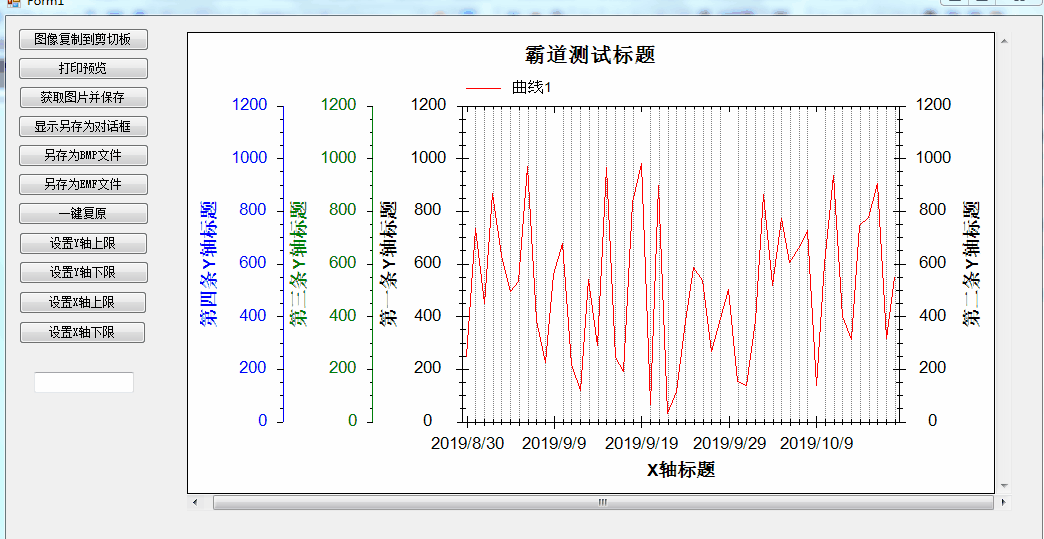scene
Delegate
Delegate is a reference type variable that holds a reference to a method.
Delegates are specifically used to implement events and callback methods.
Statement of Entrustment
public delegate int MyDelegate (string s);
Instance delegation
The delegate type is declared, and the delegate object must be created using the new keyword, which is related to a particular method.
When a delegate is created, the parameters passed to the new statement are written like method calls, but without parameters. For example:
public delegate void printString(string s); ... printString ps1 = new printString(WriteToScreen);
Sample code
using System; delegate int NumberChanger(int n); namespace DelegateAppl { class TestDelegate { static int num = 10; public static int AddNum(int p) { num += p; return num; } public static int MultNum(int q) { num *= q; return num; } public static int getNum() { return num; } static void Main(string[] args) { // Create a delegate instance NumberChanger nc1 = new NumberChanger(AddNum); NumberChanger nc2 = new NumberChanger(MultNum); // Calling methods using delegated objects nc1(25); Console.WriteLine("Value of Num: {0}", getNum()); nc2(5); Console.WriteLine("Value of Num: {0}", getNum()); Console.ReadKey(); } } }
Event
Events are declared and generated in classes, and are associated with event handlers by using delegations in the same class or other classes. Classes containing events are used to publish events. This is called Publisher class. Other classes that accept this event are called subscriber classes. Event use publisher-subscriber Model.
publisher Is an object that contains event and delegate definitions. The relationship between events and delegates is also defined in this object. Objects of the publisher class call this event and notify other objects.
subscriber Is an object that accepts events and provides event handlers. Delegates in the publisher class call methods in the subscriber class (event handlers).
Declaring events
To declare an event within a class, you must first declare the delegate type of the event.
public delegate void BoilerLogHandler(string status);
Then declare the event itself.
public event BoilerLogHandler BoilerEventLog;
Examples of value passing across forms
Effect

Realization
First declare delegation in Curve Compare
public delegate void ChangeTextDelegete(string s);
Then define events based on this delegation
public static event ChangeTextDelegete changeBoxTextEvent;
Next is the handling of the button's specific click event.
private void button1_Click(object sender, EventArgs e) { string aa = "hello"; if(changeBoxTextEvent != null){ changeBoxTextEvent(aa); } }
Complete Bullet Form Code
using System; using System.Collections.Generic; using System.ComponentModel; using System.Data; using System.Drawing; using System.Linq; using System.Text; using System.Threading.Tasks; using System.Windows.Forms; namespace ZedGraphTest { public partial class CurveCompare : Form { //Definition of delegation public delegate void ChangeTextDelegete(string s); //Event Statement public static event ChangeTextDelegete changeBoxTextEvent; public CurveCompare() { InitializeComponent(); } private void button1_Click(object sender, EventArgs e) { string aa = "hello"; if(changeBoxTextEvent != null){ changeBoxTextEvent(aa); } } } }
Then go to the form where you want to change the value.
In its initialization method
CurveCompare.changeBoxTextEvent += new CurveCompare.ChangeTextDelegete(changeText);
Then write a way to change the value
public void changeText(string s) { this.textBox1.Text = s; }
Form1 complete sample code
public partial class Form1 : Form { public Form1() { InitializeComponent(); CurveCompare.changeBoxTextEvent += new CurveCompare.ChangeTextDelegete(changeText); } public void changeText(string s) { this.textBox1.Text = s; }